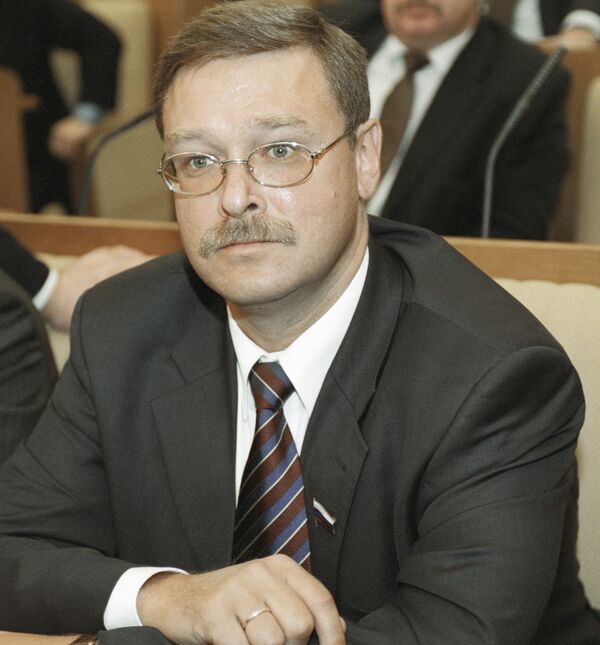Russia's parliament is unlikely to ratify a new strategic arms reduction deal that does not include a link to missile defenses, a senior Russian lawmaker said on Wednesday after U.S. colleagues warned such a link would not get past the Senate.
"The issue of interrelationship between a strategic arms reduction treaty and the missile defense system has always been and remains a key issue of Russian-U.S. accords in the spheres of arms control," Konstantin Kosachyov, head of the State Duma committee for international relations, told RIA Novosti.
"If the connection between the strategic arms reduction treaty and missile defense is not exhaustively fixed by the sides in preparing the treaty... this would automatically create obstacles for subsequent ratification of the document in the State Duma and create additional difficulties for further advance in cutting strategic offensive weapons," he added.
Kosachyov, in Washington for a joint session of U.S. and Russian lawmakers, told reporters on Tuesday that U.S. counterparts said the Senate was unlikely to ratify any document that included a formal linkage between the arms cuts and missile shield.
Officials say an agreement between Russia and the United States to replace the Strategic Arms Reduction Treaty, which expired on December 5 last year, is nearly ready and could be struck in the next two or three weeks.
The Russian and U.S. presidents, Dmitry Medvedev and Barack Obama, made replacing START 1, the cornerstone of post-Cold War arms control, a part of their broader efforts to "reset" bilateral ties strained in recent years.
Russia, which views U.S. plans to deploy elements of its missile defense system in Europe as a direct threat to its security, has said further cuts in offensive nuclear weapons would not be practical if the sides did not put limits on nuclear defense projects, which could create an atmosphere of distrust.
Washington says the missile shield is needed to guard against potential Iranian strikes and would pose no threat to Russia, but in a clear move to ease Moscow's concerns, Obama last year scrapped plans to deploy interceptor missiles in Poland and a radar in the Czech Republic.
Earlier this year, however, Romania and Bulgaria said they were in talks with Obama's administration on deploying elements of the U.S. missile shield on their territories from 2015.
Despite his warnings of obstacles in getting any treaty through the Russian parliament, Kosachyov hinted that the concerns of the U.S. Senate meant the linkage between arms cuts and missile defense was unlikely to be included in the new pact.
"Our initial idea was to specify the issue in the new arms reduction treaty," he said. "Judging by the current negotiations, it would be quite difficult. Our U.S. partners argue that such details would hamper the document's ratification in the Senate."
In a compromise offer to Russia, U.S. Secretary of State Hillary Clinton said on Tuesday Russia and NATO could work on a joint missile defense system. Kosachyov made clear the offer would not appease Moscow.
"Unfortunately, I know nothing about NATO's missile defense system," he said. "I know a lot about the U.S. missile defense system, but nothing about NATO's system."
The new treaty's outline, as agreed on by the Russian and U.S. leaders, includes cutting nuclear arsenals to 1,500-1,675 operational warheads and delivery vehicles to 500-1,000.
Kosachyov heads a delegation of members of the State Duma International Affairs Committee who are on a visit to Washington for the fifth joint session with members of the U.S. House Foreign Affairs Committee.
WASHINGTON/MOSCOW, February 24 (RIA Novosti)




